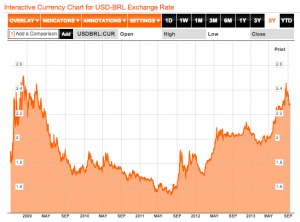Friday Morning: The Political is Musical
It’s Friday, and that means more jazz. Today’s genre is Afrobeat, which emerged in the late 1960s/early 1970s.
Nigerian musician Fela Kuti is credited as the genre’s progenitor, though Fela maintained drummer Tony Allen was essential to style, saying, “[w]ithout Tony Allen, there would be no Afrobeat.”
Afrobeat fuses a number of different types of music with jazz, including funk, highlife, rock, and folk music from West African cultures. In this video, Beasts of No Nation, it’s easy to hear the different styles of music added as layers underpinned and unified by drums.
The lyrics of many Afrobeat tunes are very political; the album of the same name, Beasts of No Nation, was an anti-apartheid statement released in 1989.
Recommended read to accompany today’s musical selection: The Wealth of Nations by Emmanuel Iduma (Guernica magazine).
Let’s move…
Not far from the Apple tree
Lots of developments yesterday in the #AppleVsFBI story.
- In support of Apple, big names in tech file amicus briefs to meet deadline. The two most powerful briefs constituted a who’s who of Silicon Valley. Amazon, Box, Cisco, Dropbox, Evernote, Facebook, Google, Microsoft, Mozilla, Nest, Pinterest, Slack, Snapchat, WhatsApp, and Yahoo filed one joint brief. AirbNb, atlassian, Automattic, Cloudflare, EBay, Github, Kickstarter, LinkedIN, Mapbox, Medium, Meetup, Reddit, Square, SquareSpace, Twilio, Twitter, Wickr filed the second. There were several other pro-Apple briefs filed, but none with the economic clout of these two briefs.
- Cato’s Julian Sanchez may have the best take on yesterday’s filings.
- UN’s High Commissioner for Refugees Zeid Ra’ad Al Hussein said forcing Apple to write code for the FBI “could have extremely damaging implications for the human rights of many millions of people, including their physical and financial security,” constituting a “a gift to authoritarian regimes.”
- Michael Ramos, the San Bernardino County DA, exposed his lack of technology prowess in an ex parte application to participate as Amicus Curiae.
“The iPhone is a county owned telephone that may have connected to the San Bernardino County computer network. The seized iPhone may contain evidence that can only be found on the seized phone that it was used as a weapon to introduce a lying dormant cyber pathogen that endangers San Bernardino’s infrastructure…”
Emphasis mine. WHAT. EVEN. Dude just screwed law enforcement, making the case (using a made-up term) for the iPhone to never be opened.
Brazil’s former president Lula held for questioning as home raided
The investigation into state-run oil company Petrobras now reaches deeply into the highest levels of Brazil’s government. Investigators are looking into former president Luiz Inacio Lula da Silva’s role in Petrobras’ corruption, including kickbacks and influence peddling. The investigation’s discoveries threaten the viability of current president Dilma Rousseff’s ruling coalition. Wonder if the NSA was following this when they were spying on Petrobras?
Quick licks
- Absolute insanity: Amazon’s Kindle devices no longer encrypted (Motherboard) — Well, nobody in this household is getting a Kindle any time soon.
- Nope, not hackers, not squirrels: bird droppings suspected in shutdown of Indian Point nuke plant last December (Phys.org)
- Joint US-UK college hacking competition this weekend (Phys.org) — Wanna’ bet some of these students will be asked about hacking Apple iPhones?
- Connecticut wants to ban weaponization of drones, thanks to stupid teenager’s home project (Naked Security) — Seems like a federal issue, IMO, but let me guess the gun lobby will step and whine about gun-enabled drones as a Second Amendment right. Surely our forefathers anticipated flying, cellphone-controlled privately-owned gun drones.
Ugh. That’s a wrap on this week, stopping now before this really devolves though I can’t see any distance between here and absolute bottom. Have a good weekend!

